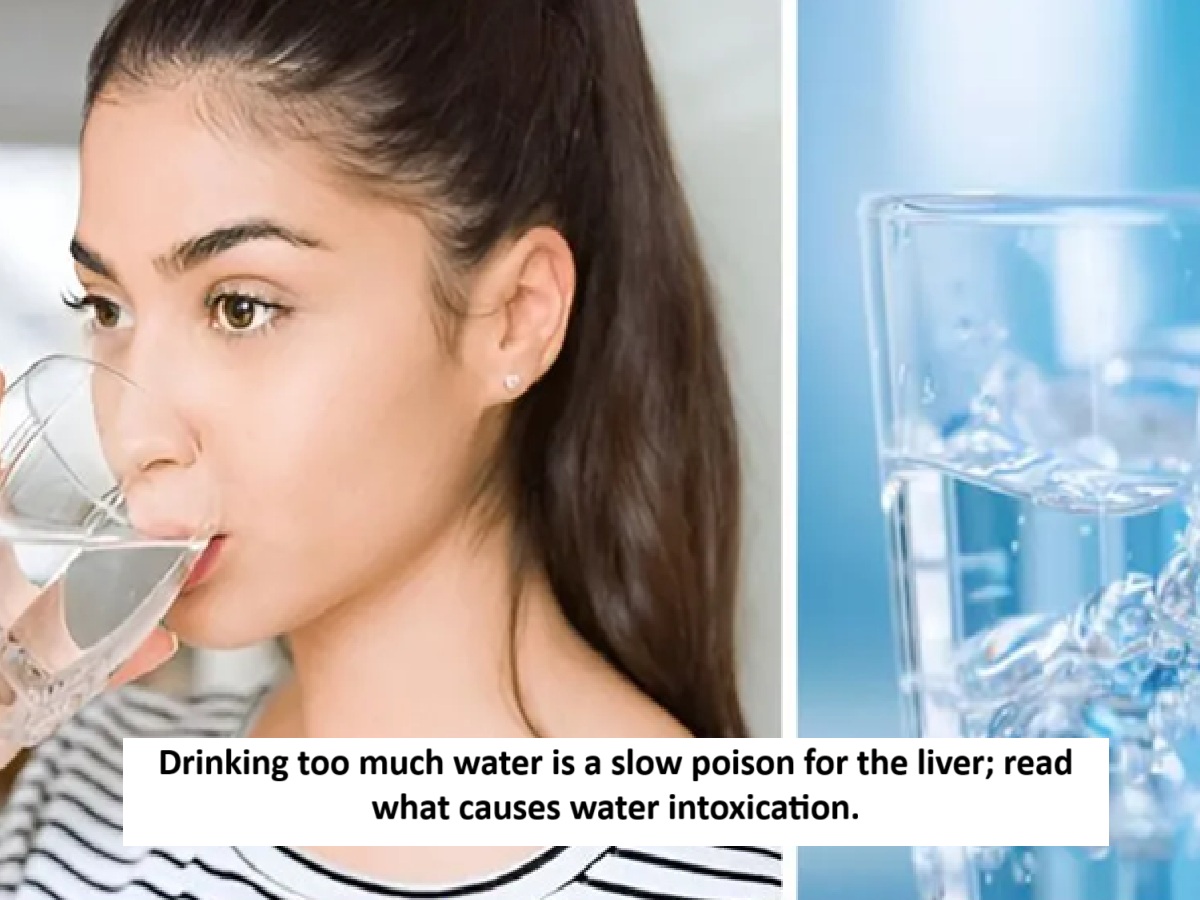
News Topical, Digital Desk : We're all taught from childhood to drink plenty of water. Water keeps the body hydrated, relieves fatigue, and helps the body detox naturally. But did you know that drinking too much water can be harmful? Yes, overhydration can be just as dangerous to your body as dehydration. This risk is especially heightened for those who already have liver problems. Let's learn more about it.
What is overhydration?
When a person drinks more water than they need or the body retains more water than it should, this condition is called overhydration. Severe forms of this can manifest as water intoxication or water poisoning, in which the body's electrolytes become rapidly imbalanced.
The reasons for this:
- The sodium level in the blood becomes very low
- cells fill with water
- cells begin to swell
- Risk of brain swelling in severe cases
This condition can also be fatal, hence as important as it is to drink water, it is equally important to drink it in balanced quantities.
Does excess water harm the liver?
In normal and healthy individuals, excess water does not directly harm the liver, because the kidneys do the main work of filtering water. However, if a person already has liver disease, cirrhosis or advanced liver disease, then excessive water consumption can cause more fluid to accumulate in his body, which increases the complications.
- Liver damage causes reduced protein production
- Water starts accumulating inside the body
- sodium levels drop
- Increased swelling in the abdomen and body
In such people, doctors often recommend reducing water intake, not increasing it.
Contaminated water can also increase the risk
The drinking water we find around us is often contaminated with heavy metals and pollutants. If water tanks or filters are not cleaned regularly, this contaminant can enter the body directly. This situation can prove harmful to the liver, as toxins accumulate in the body and increase liver stress.
If you are drinking too much water, your body gives some specific signals:
- frequent urination
- Clear (colorless) urine
- headache and nausea
- Swelling in hands and feet
- Fatigue and muscle cramps
These signs indicate that the amount of water is affecting the electrolytes in the body and you should control the intake immediately.
How much water is right for your body?
It's a mistake to think that everyone should drink 8 glasses of water daily. Your body's water needs vary according to age, season, activity, and health. The easiest way to determine the right amount is through urine color. A pale yellow color is a good indicator of hydration.
Read More: Want to get rid of a sagging belly? Pyramid walking is the easiest way, read its benefits.
--Advertisement--

 Share
Share



